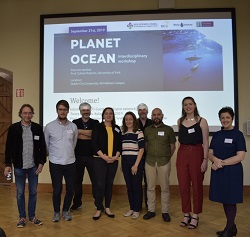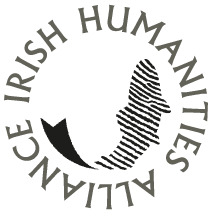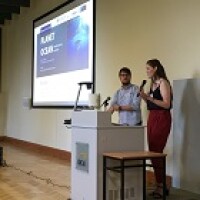“Planet Ocean” Workshop Highlights the Value of Interdisciplinary Dialogue on the Sea
How do we think about the sea? How might we properly know it and the role it plays in our lives and the health of the planet? Thinking through such questions stands at the heart of those interdisciplinary spaces we’ve come to know as the “Blue Humanities”, “Oceanic Studies”, or “Environmental Justice”. The answers we come up with will help shape the future of our very existence in the Anthropocene, and the creativity of our responses is surely dependent on breaking across the boundaries of all our disciplines. It was this latter point that prompted the organisation of a one-day interdisciplinary workshop organised by DCU and NUIG on the seas and marine environments which took place on September 21st, 2019. The aim of the workshop was to bring together researchers and those working on the sea both in academia and beyond to discuss the various scientific, economic, historical, local, and cultural pulls at work in our engagement with the seas and oceans. Drawing over fifty participants from academic institutions within Ireland and beyond, as well as attendees from NGOs, industry, and the creative arts, the workshop demonstrated the value of cross-disciplinary conversation on the global marine environment.
We envisaged the day as an opportunity for real dialogue and the exchange of knowledge from as many perspectives as possible. The working mode for the event was thus very much that of a collaborative workshop and it began with panel sessions designed to foster conversation in a smaller group before bringing everyone together later in the day. The first session, “Bridging the Gap Between Research Efforts and the Marine and/orCoastal Community”, saw speakers Dr. Sonya Agnew from UCD and independent scholar Dr. Deirdre Ní Chonghaile draw attention to coastal communities in Ireland. Dr. Agnew spoke about the interdisciplinary Ecostructure project, which hopes to provide tools to aid decision makers create policy around climate change. In her role as a social scientist, Dr. Agnew seeks to understand how communities react to structures designed to enhance the resilience of artificial coastal structures. Complementing this, Dr. Ní Chonghaile’s work emphasised the precarity of island life, evocatively signalled through her paper’s title “Greim an Fhir Bháite”, the grip of the drowned man. Ireland’s islanders, she noted, are faced with narratives of strength, decline, and heroism and in turn tell their own stories of resolve, resilience, and renewal. These papers initiated a lively conversation around a hopeful future for research that acknowledges the reality of coastal communities. Several initiatives, such as Clean Coasts and AquaMaps, were mentioned in relation to ongoing work in these areas.
Parallel to this first session was a panel titled “Otherworldly Oceans”. Ms. Justine Bakker of Rice University began the session by speaking on the representation of the Middle Passage and the phenomenon of whale carcass decomposition (“whale fall”) in the work of U.S. artist Ellen Gallagher. Ms. Bakker explored how Gallagher’s work inverts notions of life and death, terrestriality, and heliocentrism and demonstrates the ocean as an alternative space of multispecies being without losing sight of the historical significance and trauma of the Middle Passage. Her presentation was followed by Dr. Yairen Jerez Columbié of UCD. Challenging the conflation of the terms “magical realism” and the non-canonical “marvelous real” (lo real maravilloso), Dr. Columbié explained how the latter concept can be employed to face up to the challenges of life in a time of anthropogenic climate change. Dr. Columbié expertly showed that one area in which this mode of criticism can fruitfully be employed is that of the coral reef. The panel finished with a presentation by Ms. Rachel Claire Hill of Goldsmiths University in London, who explored how our imaginaries of other planets and of life in watery exoplanetary environments can reshape imaginations of marine environments on our own planet. In the ensuing discussion between the three panelists and the audience, it soon became clear that all three speakers move beyond fixed ontologies and epistemologies in order to unsettle the status quo of theory and criticism; and this in particular when it comes to the multispecies society. Like their parallel conversation partners in the next room over, everyone present felt that the panel had been a great start to a day of knowledge exchange.

Published: 2 Oct 2019 Categories: Cultural Studies, English Literature, History, Philosophy

